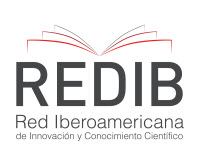Paixões sónicas conservadas em disposofonias1 : o musicar de Gustavo Costa e da Sonoscopia
DOI:
https://doi.org/10.14393/artc-v22-n41-2020-58637Palavras-chave:
musicar, cenas artísticas alternativas, história de vidaResumo
Gustavo Costa encerra uma trajetória modelar do musicar na linha de Christopher Small em Musicking. O seu gosto pela música começou muito cedo e tornou-se uma parte fundamental da sua vida. Com a formação musical, veio a sua integração em múltiplos projetos artísticos nacionais e internacionais e mais tarde surgiu a Sonoscopia, uma associação cultural que procura servir de palco para a música experimental em Portugal, fazendo do musicar uma cena local, translocal e virtual. Assim, ao longo deste artigo e através da análise da sua história de vida, ambicionamos perspetivar as diversas formas de musicar que pautam o quotidiano de Gustavo Costa, desde a criação de instrumentos a partir de recursos não convencionais até a programação artística e cultural contribuindo para a (re)construção de paisagens sónicas alternativas no Porto, em Portugal e mesmo no espaço europeu.
Downloads
Referências
ATKINSON, Robert. The life story interview. In: GUDRIUM, Jaber F. and HOLSTEIN, James A. (dir.). Handbook of interview research: context and method. Thousand Oaks: Sage Publications, 2002.
BENNETT, Andy e KAHN-HARRIS, Keith (eds.). After subculture: critical studies in contemporary youth culture. Nova Iorque: Palgrave Macmillan, 2004.
BENNETT, Andy e PETERSON, Richard A. (eds.). Music scenes: local, translocal and virtual. Nashville: Vanderbilt University Press, 2004.
BENNETT, Andy. Consolidating the music scenes perspective. Poetics, v. 32, Amsterdam, 2004.
BENNETT, Andy. Towards a cultural sociology of popular music. Journal of Sociology, v. 44, n. 4, New York, 2008.
BERTAUX, Daniel. Le récit de vie. Paris: Armand Colin, 2005.
BLACKING, John. How musical is man? Londres: Faber and Faber, 1976.
BOURDIEU, Pierre. Questions de sociologie. Paris: Les Éditions de Minuit, 1984.
COHEN, Mary L. Christopher Small’s concept of musicking: toward a theory of choral singing pedagogy in prison contexts. Ph.D. University of Kansas, United States of America, 2000.
DeNORA, Tia. After Adorno: rethinking music sociology. Cambridge: Cambridge University Press, 2003.
DeNORA, Tia. Music in everyday life. Cambridge: Cambridge University Press, 2000.
DiMAGGIO, Paul. Cultural capital and school success: the impact of status culture participation on the grades of U.S. high school students. American Sociological Review, v. 47, n. 2, New York, 1982.
FERRAROTTI, Franco. Histoire et histoires de vie: la méthode biographique dans les sciences sociales. Paris: Méridiens Klincksieck, 1990.
FRANCO, Carolina. Disposofónicos: acumuladores de objetos sonantes: a nova exposição para ouvir no CCVF. Gerador, 23 abr. 2019. Disponível em <https://gerador.eu/disposofonicos-acumuladores-de-objetos-sonantes-a-nova-exposicao-para-ouvir-no-ccvf/.>. Acesso em 1 dez. 2020.
FRIEDMAN, Sam, SAVAGE, Mike, HANQUINET, Laurie and ANDREW, Miles. Cultural sociology and new forms of distinction. Poetics, v. 53, Amsterdam, 2015.
GUERRA, Paula. A instável leveza do rock: génese, dinâmica e consolidação do rock alternativo em Portugal (1980-2010). Tese (Doutorado em Sociologia) – UP, Porto, 2010.
GUERRA, Paula. A margem é onde tudo começa e onde tudo acaba. A. Dasilva O. fala ao país pela Rádio Caos. Travessias, v. 14, n. 2, Cascavel, 2020.
GUERRA, Paula. Keep it rocking: the social space of Portuguese alternative rock (1980-2010). Journal of Sociology, 17, New York, 2015. Disponível em <https://doi.org/10.1177/1440783315569557>.
GUERRA, Paula. Other scenes, other cities and other sounds in the global south: DIY Music scenes beyond the creative city. Journal of Arts Management and Cultural Policy, v. 1, Special Issue Creative Cities off the Beaten Path, Friedrichshafem, 2020.
GUERRA, Paula. Rádio Caos: resistência e experimentação cultural nos anos 1980. Análise Social, v. 231 n. 2, Lisboa, 2019.
GUERRA, Paula. Um lugar sem lugar… no rock português. Outros Tempos: Pesquisa em Foco, v. 2, n. 29, São Luís, 2020.
GUERRA, Paula. Uma cidade entre sonhos de néon. Encontros, transações e fruições com as culturas musicais urbanas contemporâneas. Sociologia e Antropologia, v. 8, n. 2, Rio de Janeiro, 2018.
OLIVEIRA, Ana. Heart of glass: gender and domination in the early days of punk in Portugal. In: DUMNIĆ VILOTIJEVIC, Marija and MEDIC, Ivana. (eds.). Contemporary popular music studies. E-book: VS Verlag für Sozialwissenschaften, 2019.
PAIS, José Machado. Artes de musicar e de improvisar na cultura popular. Cadernos de Pesquisa, v. 39, n. 138, São Paulo, 2009.
PAIS, José Machado. Sociologia da vida quotidiana: teorias, métodos e estudos de caso. Lisboa: Imprensa de Ciências Sociais, 2002.
PLUMMER, Kenneth. Documents of life 2: an invitation to a critical humanism. Londres: Sage, 2001.
SARBANES, Janet. Musicking and communitas: the aesthetic mode of sociality in Rebetika Subculture. Popular Music and Society, v. 29, n. 1, London, 2006.
SMALL, Christopher. El musicar: un ritual en el espacio social. Trans: Revista Transcultural de Música, n. 4, Barcelona, 1999.
SMALL, Christopher. Music in education. In: MARTIN, George (ed.). Making music: the guide to writing, performing, and recording. Londres: F. Muller, 1982.
SMALL, Christopher. Music of the common tongue: survival and celebration in Afro American music. Londres: John Calder, 1987.
SMALL, Christopher. Musicking: the meanings of performing and listening. Middletown: Wesleyan University Press, 1998.
STRAW, Will. Scenes and sensibilities. E-Compós, v. 6, Brasília, 2006. Disponível em <http://www.compos.org.br/seer/index.php/e-compos/article/view/83/83>. Acesso em 13 dez. 2009.
STRAW, Will. Systems of articulation, logics of change: communities and scenes in popular music. Cultural Studies, v. 5, n. 3, London, 1991.
VIEIRA, André Borges. Há uma casa no Porto onde mora a música experimental. Ípsilon: Público, 5 jan. 2018. Disponível em <https://www.publico.pt/2018/01/05/culturaipsilon/noticia/ha-uma-casa-no-porto-onde-mora-a-musica-experimental-1798143>. Acesso em 1 dez. 2020.
Downloads
Publicado
Edição
Seção
Licença
Autores que publicam nesta revista concordam com os seguintes termos da licença Creative Commons, adotada a partir da ArtCultura, v. 21, n. 39 (jul.-dez. 2019).
CC BY-NC-ND 4.0: o artigo pode ser copiado e redistribuído em qualquer suporte ou formato. Os créditos devem ser dados ao autor original e mudanças no texto devem ser indicadas. O artigo não pode ser usado para fins comerciais. Caso o artigo seja remixado, transformado ou algo novo for criado a partir dele, ele não pode ser distribuído.
Autores têm autorização para assumir contratos adicionais separadamente, para distribuição não exclusiva da versão do trabalho publicada nesta revista (ex.: publicar em repositório institucional ou como capítulo de livro), com reconhecimento de autoria e publicação inicial nesta revista.












